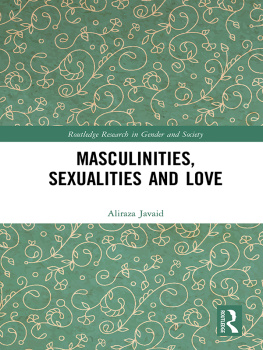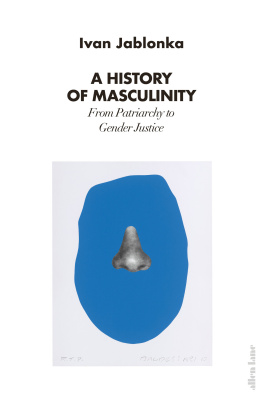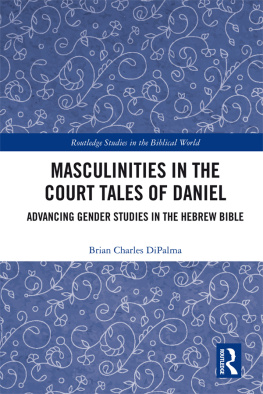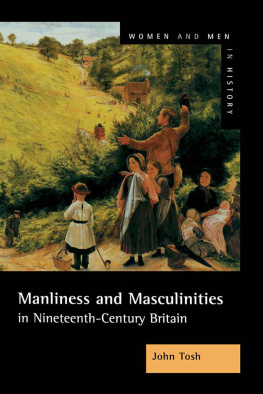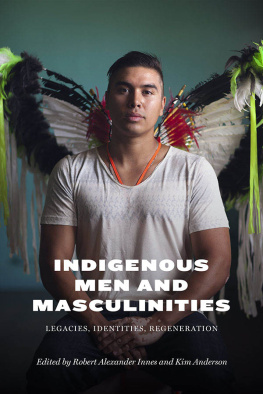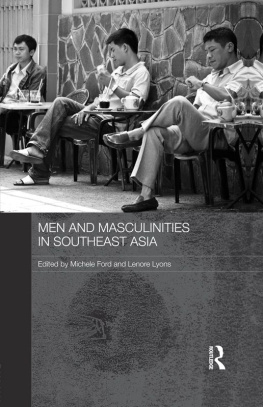The late-twentieth-century anxiety about a crisis in masculinity still persists today, particularly in English-speaking cultures. Studying Men and Masculinities offers an engaging and comprehensive overview of masculinity. Drawing on a wide range of cultural practices and texts from different genres and media, David Buchbinder examines the notion of patriarchy and the challenges to patriarchal power, including queer theory. The book considers whether crisis may in fact be built into the very structure of the masculine, and examines emergent masculinities post-9/11.
Theoretical positions within the field are clearly explained and applied to real-life case studies from literature, film, and television. Interspersed in each chapter are a series of questions and tasks aimed at encouraging the reader to engage her/himself in the study of masculinities in everyday life and popular culture.
This topical and thought-provoking book will be an invaluable resource for students of masculinities studies, sexuality studies, cultural studies, and gender theory.
First published 2013
by Routledge
2 Park Square, Milton Park, Abingdon, Oxon OX14 4RN
Simultaneously published in the USA and Canada
by Routledge
711 Third Avenue, New York, NY 10017
Routledge is an imprint of the Taylor & Francis Group
2013 David Buchbinder
All rights reserved. No part of this book may be reprinted or reproduced or utilized in any form or by any electronic, mechanical, or other means, now known or hereafter invented, including photocopying and recording, or in any information storage or retrieval system, without permission in writing from the publishers.
Trademark notice : Product or corporate names may be trademarks or registered trademarks, and are used only for identification and explanation without intent to infringe.
British Library Cataloguing in Publication Data
A catalogue record for this book is available from the British Library
Library of Congress Cataloging-in-Publication Data
Buchbinder, David, 1947
Studying men and masculinities / David Buchbinder. 1st ed.
p. cm.
Includes bibliographical references and index.
ISBN 978-0-415-57827-1 (hardback) ISBN 978-0-415-57829-5 (pbk.) ISBN 978-0-203-85222-4 (ebook) 1. Men. 2. Masculinity. 3. Patriarchy. 4. Mens studies. I. Title.
HQ1090.B853 2012
305.31dc23
2011050171
ISBN 13: 978-0-415-57827-1 (hbk)
ISBN 13: 978-0-415-57829-5 (pbk)
ISBN 13: 978-0-203-85222-4 (ebook)
Typeset in Times New Roman
by Cenveo Publisher Services
To my parents, Shula and Sam Buchbinder
Preface
I dare do all that may become a man;/ Who dares do more is none, declares Macbeth to his lady in Shakespeares play (I.vii. 4647, Shakespeare, 1969), become here having the dual sense of be appropriate to and enhance. In addition to being a historical play aimed at gratifying King James I as well as a narrative about overweening ambition and its social, political, and psychological consequences, Macbeth is also a play about being a man and how to be, or, to adapt Shakespeares phrasing, to become a man. The text abounds in definitions of the masculine, whether in reference to a mans ability to kill another man in cold blood, his capacity to produce a line of descendants, or his maintenance of composure in the face of the terrifying and unthinkable.
The closing decades of the twentieth century and the opening decade of the present one have seen a great deal of anxiety and concern expressed about the role of boys and men in post-1960s culture and the changing definitions of masculinity. This book takes that anxiety as the starting point for an exploration of the masculine in the contemporary social and cultural context. It therefore differs from other texts that adopt a more traditional treatment of the topic, such as Jack S. Kahns relatively recent An Introduction to Masculinities (Kahn, 2009), which examines different approaches to gender in general, and masculinity in particular, noting problems with the various theories and their approaches. Instead, I have chosen to inquire whether the perceived and much-debated crisis in masculinity is historically unique, and whether crisis may in fact be built into masculinity.
Therefore, I discuss various historical moments, although not chronologically; and I draw on a number of theories and theorists of the social, the cultural, and gender. (Although society / social and culture / cultural are sometimes used interchangeably, in this book I distinguish between them. Society and social I take to refer to social structures such as class, or interpersonal interaction, whereas by culture and cultural I intend common understandings, preoccupations, and activities.) I have quoted liberally from those theoretical works, for two reasons. First, I thought it important that their voices be heard directly, rather than filtered through summary and paraphrase of my own (although I have also summarized and paraphrased where, for example, the prose of the original might be thought to defeat many readers). In this way, the reader gains a sense of the original material, even if only in translation. Second, if it is true, as the Italian adage puts it, that the translator is a traitor ( Traduttore, traditore ), it may be equally the case that the commentator commits her or his own form of betrayal of the original. Providing direct quotation allows the reader to weigh her or his understanding of that original material against the commentary or application offered in this book.
I have drawn chiefly on popular culture for examples and case studies to illustrate the points made in each chapter. My reasons are twofold: in the first place, such texts are readily available and accessible to most, if not all, readers; and, in the second, most readers already have a stake in such material, because it constitutes a cultural environment in which they live. Accordingly, the theoretical material and the analyses of popular-cultural texts in Studying Men and Masculinities are intended to provide a model for readers by which to undertake their own analysis of such texts in their everyday lives. Interspersed throughout the chapters are sections titled Activity. The questions and activities in each such section are indicative only: teachers (or, indeed, readers in general) might choose to supplement or substitute these with questions and activities of their own devising.
Some readers, especially those scholars working in the areas of gender or masculinities studies, may be disappointed or irritated by my omission of particular topics or theorists. I do not, for instance, consider the history and statistics of mens social, domestic, or military violence. The field of masculinities studies is a rich, complex one, and given the scope of an introductory text such as this, I have had to narrow the focus.
Other readers may take exception to some of the ideas expressed in this book because these may run counter to their own ideas or beliefs. However, this is as it should be: it was my intent, and it is my hope, that Studying Men and Masculinities will provoke its readers into agreeing or disagreeing with the ideas set out in this book. In this way, readers will be drawn to think about the issues, and arrive at insights and conclusions of their own, whether these entail rejecting the arguments set forth in this book, modifying them and supplementing them with other theories and ideas, or simply accepting what I have to say in the chapters following.



